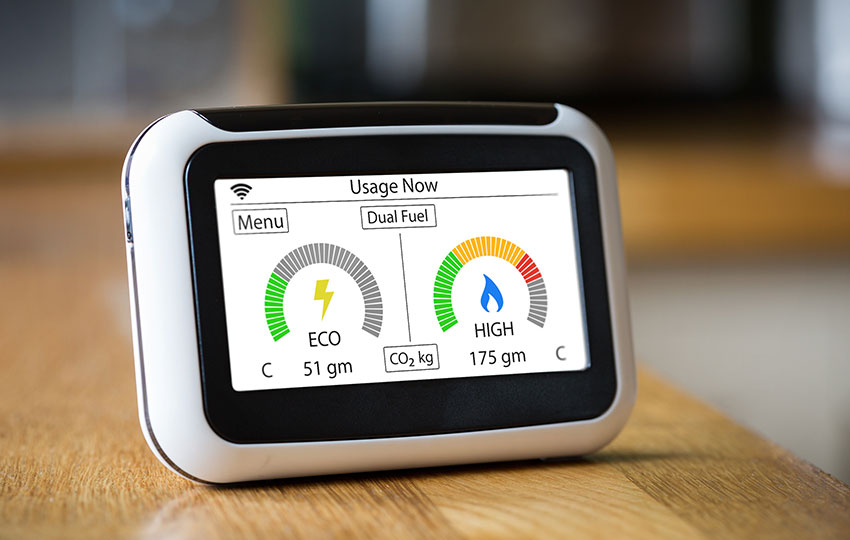Businesses nowadays are trying to maintain an environmentally friendly profile, every step of the way. Saving energy is more than just a way to protect the environment. It is a great way to reduce expenses. Tracking energy consumption in businesses has never been more important.
What are the smart meters?
Smart meters are devices that provide tracking of utility energy consumption from the system of the outlet they are attached to. In big industrial buildings that are using natural gas as a heating source, a smart meter could be able to determine the exact number of therms consumed every day.
The special “smart feature” of a smart meter is that it can control the flow of the resource in question, whether that is natural gas, electricity, or water. Adding to that, they can also be controlled remotely.
Businesses use smart meters
Smart meters are a great way for businesses to reduce energy consumption and utility costs. By keeping track of the energy consumed every day, they can adjust the usage if necessary to the point where the business is still functioning but not overusing.
Another very important reason as to why businesses should be using smart meters is data tracking. They can record a variety of different data points on energy consumption. These points may include the time of consumption, the amount of energy used, and of course, where the energy is allocated.
All smart devices transfer that data to a console, via the internet. For bigger companies and especially ones using industrial buildings, that data can, later on, be processed and used to determine future costs and savings, strategies that aim to shape an environmentally friendly profile for the company, and upgrades that will need to be done.
Pros of Smart metering:
- Smart meters track and control energy consumption in buildings
- Smart meters can be controlled remotely
- Smart meters can be used to gather data and improve current technologies and practices
- Smart meters help companies launch initiatives to reduce energy consumption
Risks of Smart meters
The major risk of this technology is the cybersecurity risk. All devices connected to the internet run that risk. Devices that transfer data and can be remotely controlled run an even bigger one. This technology could, of course, be operated through a closed signal channel which makes the hacking process a lot more difficult. However, the danger still exists.
There are of course security measures such as firewalls but they are not able to guarantee the complete protection of the meters. This is one of the main reasons as to why a lot of companies do not wish to add smart meters as a functioning part of their business.
What we will see in the future
The smart metering process has been greatly improved these past few years. With the use of innovative technologies like the Internet of Things, we notice better connectivity and faster data processing. In the future, they will not only be able to provide us with data and allow us to control energy consumption.
Based on the data collected, smart meters will be programmed to reduce or increase energy consumption depending on the time and date when it is most needed. They will be able to maintain the important data and discard parts that might not play an important role in the business, thus reducing the amount of time needed to process it.
Conclusion
Some businesses out there are still not convinced of the major benefits of smart meters. The cybersecurity risk is a factor that holds them back. However, in some countries, the use of these meters for major industrial buildings and buildings that consume a lot of energy is no longer just an option. It is mandatory.
With the use of modern technologies like the Internet of Things and through European funded projects such as the Internet of Energy project, business owners can now learn about new and innovative technologies, their benefits in use and application and they can decide if they want to use them for their own business.

